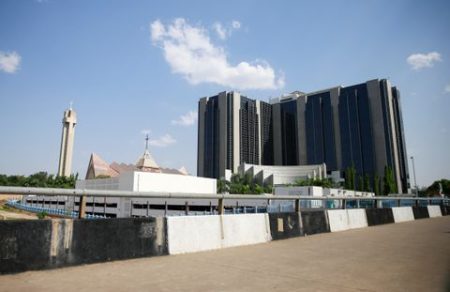05 January 2012, Sweetcrude, LAGOS – After the enactment of the Nigeria’s Local Content Act in April 2010, there were expectations that the Nigerian insurers would begin to smile.
The implication of the Local Content Act is that no insurance risk in the Nigerian oil and gas industry can be placed overseas without the approval of the National Insurance Commission (NAICOM), which must first ensure that Nigerian local capacity has been fully exhausted.
But so far, even in 2012, insurance operators are still trying to build up both human and financial capacity to be able to play actively in the wide oil and gas market.
Managing Director of Law Union & Rock Insurance Plc, Mr. Yinka Bolarinwa said that underwriters and Nigerians in general have not positioned themselves strategically in reaping from the benefits which the Local Content Law provides.
Opportunities in the Act
Commissioner for Insurance, Mr. Fola Daniel, stated that the Act has given insurance operators a huge leverage as well as a rare opportunity to participate in the oil and gas sector. According to Daniel underwriters should avail themselves of the opportunities in the Local Content Act and carve a niche for themselves.
For insurance brokers, Daniel said: “It is significant that by section 49 of the Act, all oil and gas insurance businesses in Nigeria must be transacted through a Nigerian registered insurance broker. This is indeed a rare opportunity. However, brokers require technical, as well as Information Technology (IT) capacities to take effective advantage of the provision.”
Towards developing the needed capacities, Daniel advised that building strategic alliance with some established foreign insurance brokers may be helpful in addition to deliberate efforts to develop human and technical capacities.
In as much as Nigerian underwriters will like to play actively in the oil and gas sector, there are still some challenges that they have been grappling with.
Chairman, Royal Exchange Plc, Kenneth Odogwu said that the opportunities presented by the implementation of the local content policy of the government are enormous; however, the ability of players in the industry to exploit the opportunities is hampered by lack of capacity to cover risk internally.
Although local insurers are expected to retain 70 per cent of oil and gas risk before ceding the rest abroad, Odogwu stated “It is estimated that only five percent of such risk are retained locally.”
In other to maximise the potential presented by the local content policy, Odogwu noted that additional capital raising is imperative.
And this leads to yet another challenge because even as most insurers are willing to raise additional capital, the meltdown in the capital market has prevented them from approaching the Nigerian Stock Exchange for such venture.
Since underwriters are constrained by the development in the capital market, Odogwu lamented that the lack of capital raising alternatives and poor economic conditions are also challenges for the industry.
Chairman, Standard Alliance Insurance Plc, Alhaji Aliyu Sa’ad, said that since the Local Content Act also has the implication that insurers will be expected to carry larger credit risks which may drive down profit or at worse increase failure of insurers to meet claim obligations, a lot of players choose to stay away from the business in the face of inadequate capacity.
Another challenge confronting insurers is the inability of government to enforce its own laws. A Local Content Act is in place yet the oil majors still carry their risks abroad under various guises and in the process flouting government directives at will.
Mrs. Justin Omekere, an insurance practitioner stated that the International Oil Companies in Nigeria, IOCs, still carry their risks abroad under the guise that the local players don’t have international credit ratings. With such actions, Omekere reiterated that the oil majors have continued to disregard the laws of Nigeria thereby depriving local insurers’ opportunity to expand their human and financial capacity.
Former Managing Director/Chief Executive of Unity Kapital Assurance Plc, Mr. Mohammed Kari accused the NNPC of frustrating the Nigeria content policy by not patronising local insurance firms and encouraging them to participate in the operations of the country’s oil and gas industry.
Kari said though the Nigerian Content Act expects that at least 70 per cent of all oil and gas industry businesses should be domiciled in Nigeria as from 2010, the NNPC is still channeling all its insurance businesses to an offshore firm that it has registered for that purpose.
In his words “The coming of the local content law is a good development. It was an attempt by government to redress the problem of lack of capacity in the insurance industry by encouraging oil and gas operators to insure in the Nigerian market. With the law, Nigerian insurance sector should be underwriting at least 70 per cent of all insurance businesses in Nigeria.
“But, it is highly doubtful if the local market retains up to 4 per cent today, whereas about 96 per cent of the businesses are channeled out of Nigeria, because of lack of capacity. The NNPC, which represents government in the industry, is the biggest problem against the success of the local content policy.”
According to him, the action has denied local insurance companies of the opportunity of making its impact felt. He pointed out that this arrangement, which generates huge foreign earnings through net retention of revenues to the international insurance market, had denied the local market the opportunity to be involved in even renewal of oil policies.
The way forward
In the course of last year, shareholders of some insurance companies lambasted the management of their companies for failing to capitalise on the opportunities presented by the local content Act after the companies posted unimpressive results for the last financial year.
These shareholders who decried the low profit margin from oil and gas businesses by their various companies charged them to re-strategise in the next financial year.
President of Independent Shareholders Association of Nigeria (ISAN), Mr. Sunny Nwosu lamented that the returns from oil and gas business of some insurance companies have little or no impact on their overall bottom-line; stressing that management of these companies should re-strategise and employ better business models that will translate to higher gains in the coming years.
Mrs. Shodipo, another shareholder charged underwriters to carry out training and retraining of staff on the rudiments of oil and gas risk underwriting which will lead to enhanced human and financial capacity in the sector.
Mr. Oladimeji Alo, former Managing Director of Financial Institutions Training Centre (FITC) said that underwriters should consider their strengths and capacity before they decide to do oil and gas business. According to Alo, because of the varying capital base levels of insurance operators, not every insurer can go into oil and gas business.
Bolarinwa said that underwriters should collaborate and work together as one team to develop capacity, human capital as well as skills that will be able to match the demands from the oil and gas sector.




